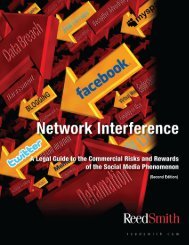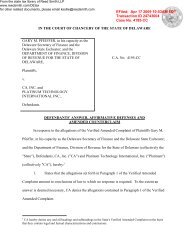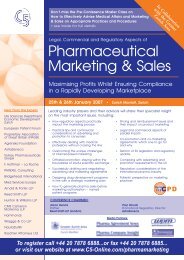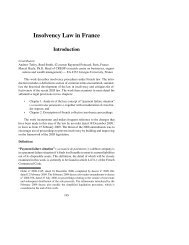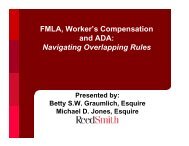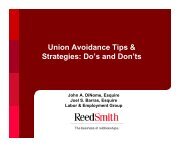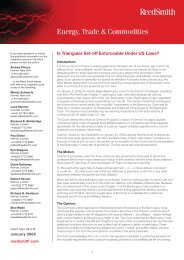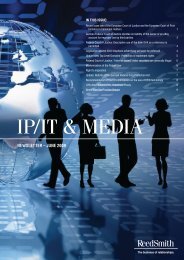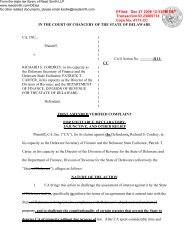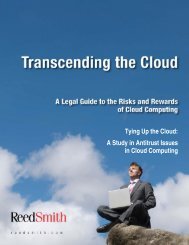Employment Law Alert - October 2009 - Reed Smith
Employment Law Alert - October 2009 - Reed Smith
Employment Law Alert - October 2009 - Reed Smith
Create successful ePaper yourself
Turn your PDF publications into a flip-book with our unique Google optimized e-Paper software.
vast majority of the conduct complained of occurred prior to the introduction<br />
of the new clause in the Handbook and the employer did not at the time take<br />
action to terminate any employees’ employment in response to the offending<br />
conduct. Furthermore, the employer’s failure to act on the alleged misconduct<br />
at the time when it occurred meant that the employer had ‘waived’ its right to<br />
summarily dismiss in any event. Justice Chu stated:‐<br />
“Having decided not to terminate the employment then, the defendant [the employer]<br />
could not rely on these contacts to summarily dismiss these claimants some six or<br />
seven months later. The suggestion that the defendant did not in May 2008<br />
appreciate the gravity of the matter does not afford a justification for summary<br />
dismissal in December 2008.”<br />
• In addition, the employees’ conduct did not in any event factually breach the<br />
relevant term of the Handbook as amended.<br />
• In relation to a Mr. Lam (a single employee whose conduct did post‐date the<br />
amendment to the Handbook), the Court interestingly found that the term had<br />
still not been incorporated in the employee’s contract of employment.<br />
Importantly Justice Chu stated:‐<br />
“Before the amendments can be incorporated to become part of the employment<br />
contract, Mr Lam [the employee] must have notice and knowledge of the<br />
amendments. Even though he was under a contractual obligation to pay attention to<br />
the notice board and that he had failed to observe it such that he was unaware of the<br />
amendments, it does not mean that the amendments will, without more, become part<br />
of the employment contract.”<br />
Practical implications<br />
This case demonstrates the need to carefully review and amend Employee<br />
Handbooks, which may or may not form part of employees’ contracts of<br />
employment, as well as the need for employers to carefully investigate matters<br />
which may lead to the summary dismissal of an employee. In particular, an<br />
employer should carefully consider the exact wording of conduct it wishes to<br />
prohibit which may lead to summary dismissal and the employer should take<br />
special care to ensure that any ‘amendment’ to the Employee Handbook is<br />
actually incorporated into the <strong>Employment</strong> Handbook, so that it may be relied<br />
upon – if it indeed wishes to do so. In this case, the employer failed on all counts<br />
as the relevant term was not incorporated and nor was the wording specific<br />
enough to match the conduct alleged.



